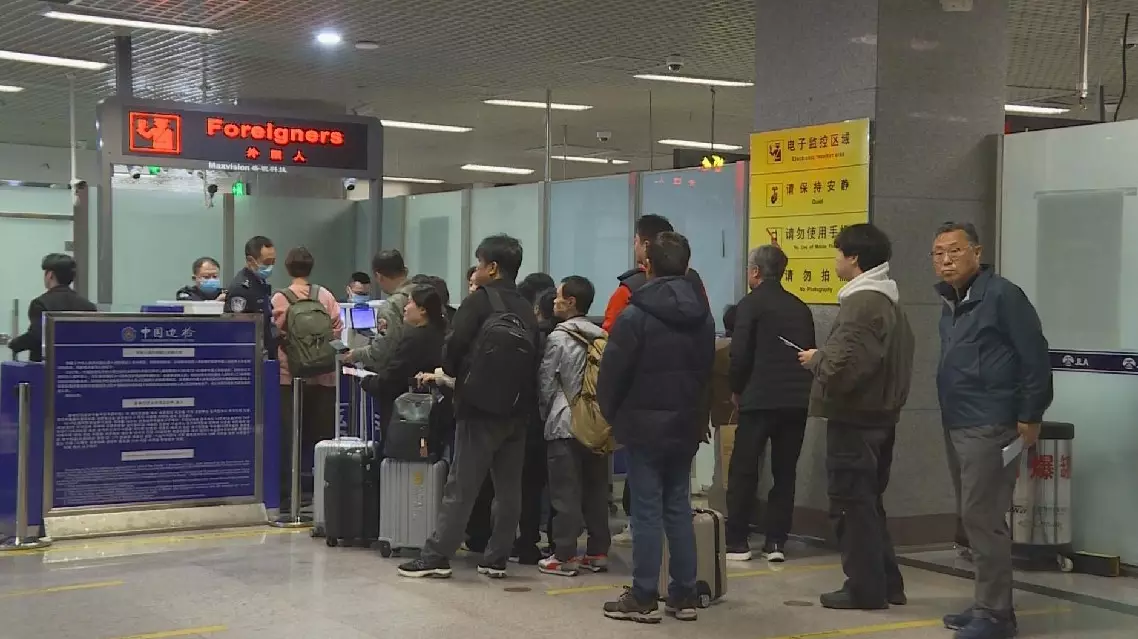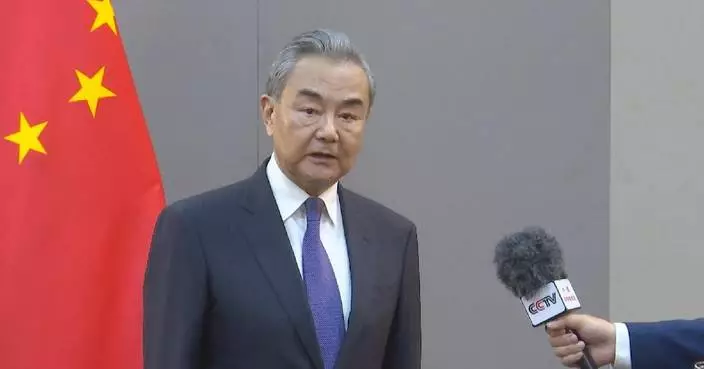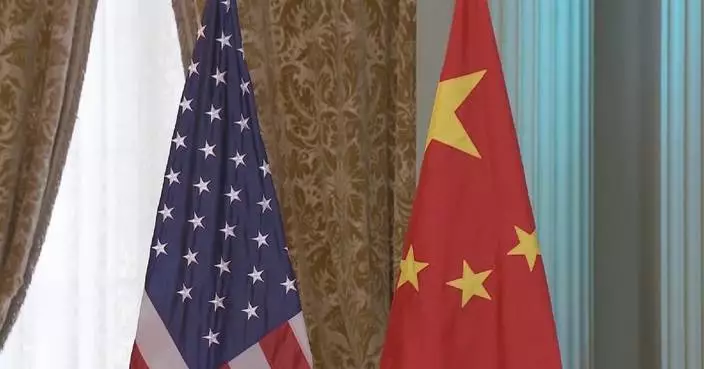As China's expanding influence in Africa drives growing interest in its culture and language, Tanzania--whose largest trading partner is China--has begun introducing Chinese language courses as early as the primary school level.
In Tanzanian schools, the sight of students learning Chinese is becoming increasingly common. The Confucius Institute, which provides a range of Chinese language programs and scholarships, reports that interest in learning Mandarin among Tanzanians is rising.
According to the Chinese Embassy in Dar es Salaam, approximately 20,000 students are currently enrolled in Chinese language courses across various institutions in Tanzania, with the majority attending higher education institutions.
However, last year, the government introduced Mandarin as a subject at lower levels of education -- a move that has been met with great enthusiasm by many.
"Our school obviously is the first school to concentrate much on Chinese lessons, and most of the parents, they are appreciating [this approach], and they use it to admit their pupils [children] in our school. We started [offering Chinese lessons] for a short period of time, but we have a large number of pupils [students]," said Jane Shao, headmistress of Longquan Bodhi Primary School.
Zhang Xiaozhen, director of Chinese Studies at the Confucius Institute in Dar es Salaam, emphasized the importance of language learning in fostering understanding and strengthening ties between cultures.
"Language is a tool to help each other to understand each other. So, we hope that primary school students, by learning Chinese, that they can understand Chinese. And also, we Chinese people, we also need to learn Swahili so that we can understand each other and strengthen the relationship between our two countries," said Zhang.
The next step in this significant financial initiative could involve establishing primary and secondary schools where all subjects are taught in Chinese, with the aim of equipping young Tanzanians with new skills, access to technology, and business opportunities, thereby fostering stronger relations between the two countries for years to come.

Tanzania introduces Chinese language in primary schools amid growing ties with China
A growing number of global tourists are flocking to China for trips, as the country continues to expand its visa-free policy to more countries in Asia and Europe.
China has decided to expand the visa-free policy to ordinary passport holders from Slovakia, Norway, Finland, Denmark, Iceland, Andorra, Monaco, Liechtenstein, and the Republic of Korea on a trial basis, the Ministry of Foreign Affairs said on November 1.
From November 8, 2024, through December 31, 2025, travelers from these nine countries are exempt from visas to enter China and can stay for no more than 15 days for business, tourism, family visits, and transit purposes, the ministry added.
Yanji Chaoyangchuan International Airport in northeast China's Jilin Province, one of the main entry points for South Korean travelers to China, has witnessed a significant increase in passenger flow following the implementation of the policy.
Since November 8, the number of South Korean tourists entering China through this port has surged, showing a remarkable 90 percent growth compared to the same period last year.
"[Previously,] because of the visa, it would take a lot of time and cost a lot [to come to China]. While now, China's visa-free policy covers South Korea, so we can come freely, which is particularly convenient and pretty good," said a South Korean tourist.
Following its inclusion in China's visa-free policy, South Korea has seen a sharp increase in travel bookings to China. According to a report by South Korea's Aju Business Daily, during the period from November 1 to 5, reservations for group tours to China on a major South Korean travel e-commerce platform jumped by 91 percent year on year.
South Korean airlines are also actively expanding their China routes to meet the rising demand. Asiana Airlines, for instance, has increased the frequency of its Incheon-Beijing route from 14 flights per week to 20.
The Ministry of Foreign Affairs on Friday announced that China will further expand the scope of its visa-free policy to facilitate exchanges between Chinese and foreign nationals.
From November 30, 2024 to December 31, 2025, travelers holding ordinary passports from Bulgaria, Romania, Croatia, Montenegro, North Macedonia, Malta, Estonia, Latvia and Japan will be granted visa-free entry on a trial basis, according to the ministry.
In addition, China has decided to further optimize the visa-free policy, include exchange visits in the reasons for visa-free entry, and extend the visa-free stay period from the current 15 days to 30 days, the ministry said.
Starting from November 30, 2024, travelers holding ordinary passports from 38 countries, who come to China for business, sightseeing, visiting relatives and friends, or exchange visits, and transit for no more than 30 days, will be granted visa-free entry, according to the ministry.
Since the ministry's announcement, interest in Chinese destinations has skyrocketed across various travel platforms. On the overseas platforms of China's leading online travel agency Ctrip, searches for Chinese destinations surged by 65 percent on its Europe site and an impressive 112 percent on its Japan site.
Additionally, searches for direct flights from multiple Japanese cities to China have seen a significant increase.
According to a report by NHK on Friday, Japanese Prime Minister Shigeru Ishiba emphasized during a interview at the Prime Minister's Office that the foundation of Japan-China relations lies in people-to-people exchanges. He expressed hope that the newly expanded visa-free policy would further strengthen bilateral exchanges.
Japanese media reported that many Chinese travel agencies are also anticipating a surge in inbound tourism from Japan
Data from the National Immigration Administration showed that in the third quarter of this year, ports across China have handled 8.186 million inbound passenger trips made by foreign nationals, up by 48.8 percent year on year. Among them, a total of 4.885 million trips have enjoyed visa-free policy, representing a remarkable 78.6 percent growth compared to the same period last year.

China sees surging inbound tourism figures following visa-free expansion










